

The recent global temperature surge in 2023 was intensified by a record-low planetary #albedo
👉 doi.org/10.1126/scie... @thomasjung.bsky.social @ecmwf.bsky.social
This is what we found (🧵1/8)
A year after this insightful study was published, the albedo and net flux over the Northern Hemisphere mid-latitude oceans keep decreasing:
www.science.org/stoken/autho...

A year after this insightful study was published, the albedo and net flux over the Northern Hemisphere mid-latitude oceans keep decreasing:
www.science.org/stoken/autho...
We find an AMOC collapse would exacerbate drought conditions across Europe, linked to reduced precipitation. In combination with climate change droughts are expected to become more frequent and severe.
doi.org/10.5194/hess...

We find an AMOC collapse would exacerbate drought conditions across Europe, linked to reduced precipitation. In combination with climate change droughts are expected to become more frequent and severe.
doi.org/10.5194/hess...
www.pnas.org/doi/full/10....

www.pnas.org/doi/full/10....
The public discourse is not keeping up.
Here's a series of 5 new studies that climate hawks & journos need to have on their radar 🧵
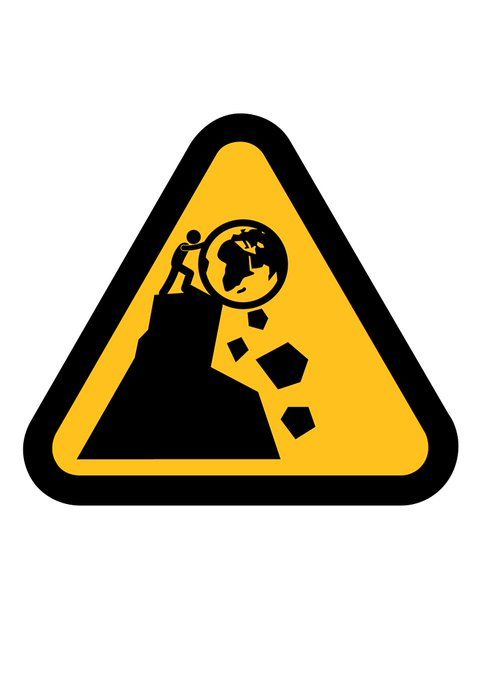
The public discourse is not keeping up.
Here's a series of 5 new studies that climate hawks & journos need to have on their radar 🧵
Including it as forcing may lead to more realistic simulation of surface temperature and sea ice trends🧊🌊 (1/7)
gmd.copernicus.org/articles/18/...

Including it as forcing may lead to more realistic simulation of surface temperature and sea ice trends🧊🌊 (1/7)


That's more than the global greenhouse gas forcing increase since 1750!
The 2 W/m² Net Flux increase indicates that there is a lot more regional warming in the pipeline.

That's more than the global greenhouse gas forcing increase since 1750!
The 2 W/m² Net Flux increase indicates that there is a lot more regional warming in the pipeline.
@polarocean.bsky.social
bsky.app/profile/pola...
@trackow.bsky.social
bsky.app/profile/trac...
bsky.app/profile/mice...
@tguinaldo.bsky.social
bsky.app/profile/tgui...
@profmattengland.bsky.social
bsky.app/profile/prof...
Is it true that climate models cannot simulate such SST jumps? What is common to such jumps? How will SSTs evolve over the next months and years? Are we in uncharted territory? More from our recent study in Nature is here👇
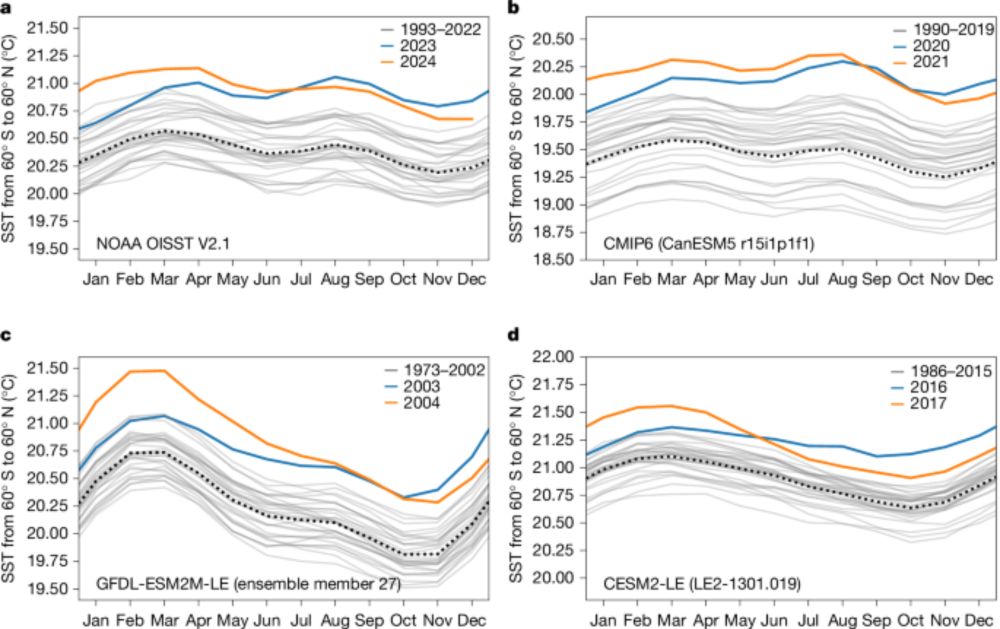
@polarocean.bsky.social
bsky.app/profile/pola...
@trackow.bsky.social
bsky.app/profile/trac...
bsky.app/profile/mice...
@tguinaldo.bsky.social
bsky.app/profile/tgui...
@profmattengland.bsky.social
bsky.app/profile/prof...
Our new study in Nature Climate Change quantifies this unexpected decline and explains how it came about. 👇
doi.org/10.1038/s415...

Our new study in Nature Climate Change quantifies this unexpected decline and explains how it came about. 👇
doi.org/10.1038/s415...
#voxels #EcologicalMarineUnits
www.esri.com/about/newsro...
🌊 🦑 🌎 🌍 🌏 #GISchat #geogchat #geogsky
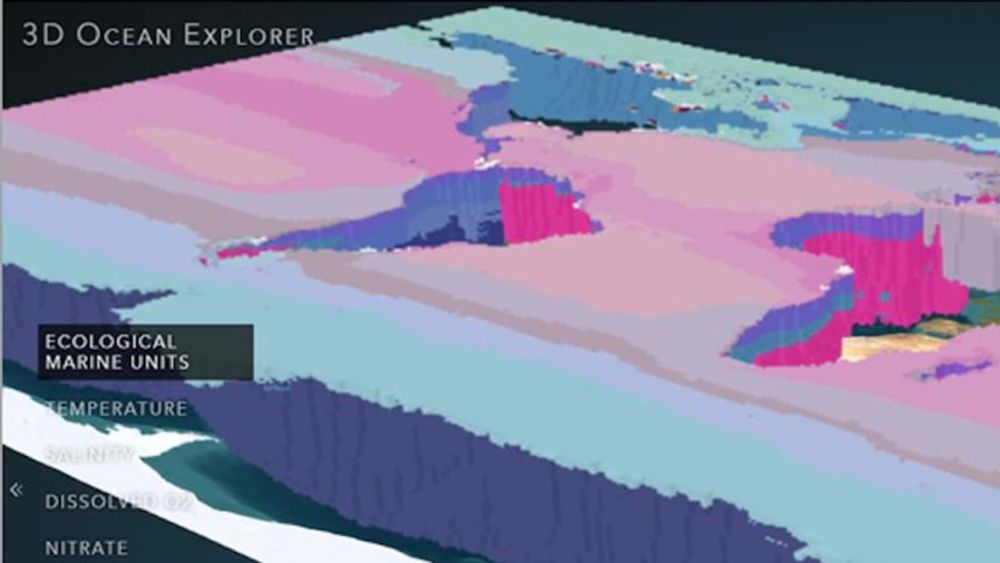
#voxels #EcologicalMarineUnits
www.esri.com/about/newsro...
🌊 🦑 🌎 🌍 🌏 #GISchat #geogchat #geogsky
3/3

3/3
We use a new generation of km-scale models to show that many important details about temperature and precipitation extremes are hidden at CMIP6-like resolutions.
doi.org/10.1088/1748...
We use a new generation of km-scale models to show that many important details about temperature and precipitation extremes are hidden at CMIP6-like resolutions.
doi.org/10.1088/1748...
#CoupledForecasting #ECMWF #AI4Weather #UNOC3

#CoupledForecasting #ECMWF #AI4Weather #UNOC3
From @awi.de storyline simulations, visual by @jawijan.bsky.social
From @awi.de storyline simulations, visual by @jawijan.bsky.social
www.nature.com/articles/s43...
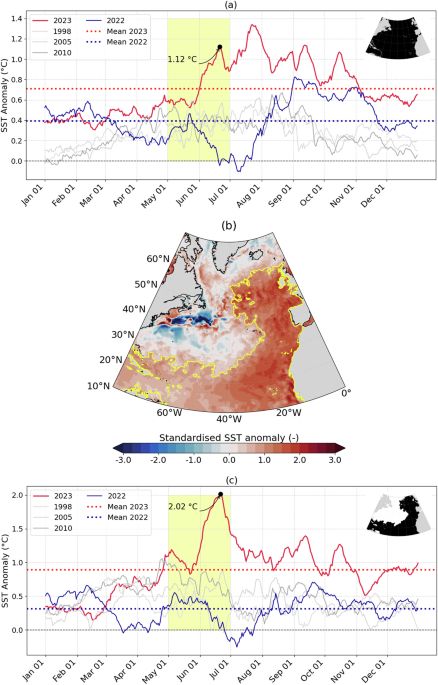
www.nature.com/articles/s43...
"...the record-shattering jump in surface ocean temperatures in 2023–2024 was an extreme event after which surface ocean temperatures are expected to revert to the expected long-term warming trend."
#TruthIsBadEnough
(h/t @flowinguphill.bsky.social)
Is it true that climate models cannot simulate such SST jumps? What is common to such jumps? How will SSTs evolve over the next months and years? Are we in uncharted territory? More from our recent study in Nature is here👇

"...the record-shattering jump in surface ocean temperatures in 2023–2024 was an extreme event after which surface ocean temperatures are expected to revert to the expected long-term warming trend."
#TruthIsBadEnough
(h/t @flowinguphill.bsky.social)
This is barely ever addressed.
Helge Goessling gave a great presentation at the EGU yesterday.
More soon.

This is barely ever addressed.
Helge Goessling gave a great presentation at the EGU yesterday.
More soon.

This relates to our joint work @awi.de @ecmwf.int that is presented Thursday morning, room 0.14. See you there:
meetingorganizer.copernicus.org/EGU25/EGU25-...

This relates to our joint work @awi.de @ecmwf.int that is presented Thursday morning, room 0.14. See you there:
meetingorganizer.copernicus.org/EGU25/EGU25-...
Read more 👇
latitude.plos.org/2024/11/call...

Read more 👇
latitude.plos.org/2024/11/call...
We will exchange on existing methods, their strengths, and how to compare them:
meetingorganizer.copernicus.org/EGU25/sessio...
W/ @vikkithompson.bsky.social
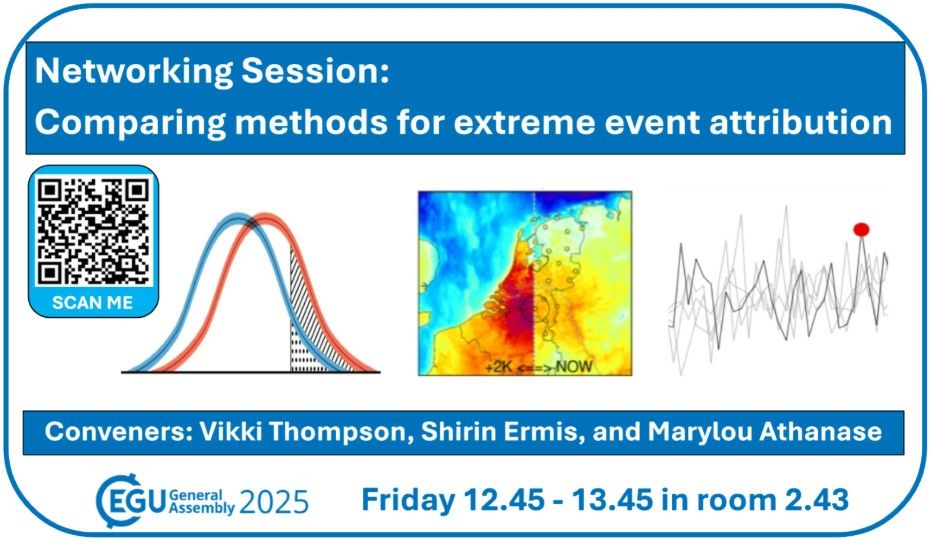
We will exchange on existing methods, their strengths, and how to compare them:
meetingorganizer.copernicus.org/EGU25/sessio...
W/ @vikkithompson.bsky.social
The poster: meetingorganizer.copernicus.org/EGU25/EGU25-...
The paper: agupubs.onlinelibrary.wiley.com/doi/full/10....
The poster: meetingorganizer.copernicus.org/EGU25/EGU25-...
The paper: agupubs.onlinelibrary.wiley.com/doi/full/10....
#EGU2025
@egu.eu

#EGU2025
@egu.eu

